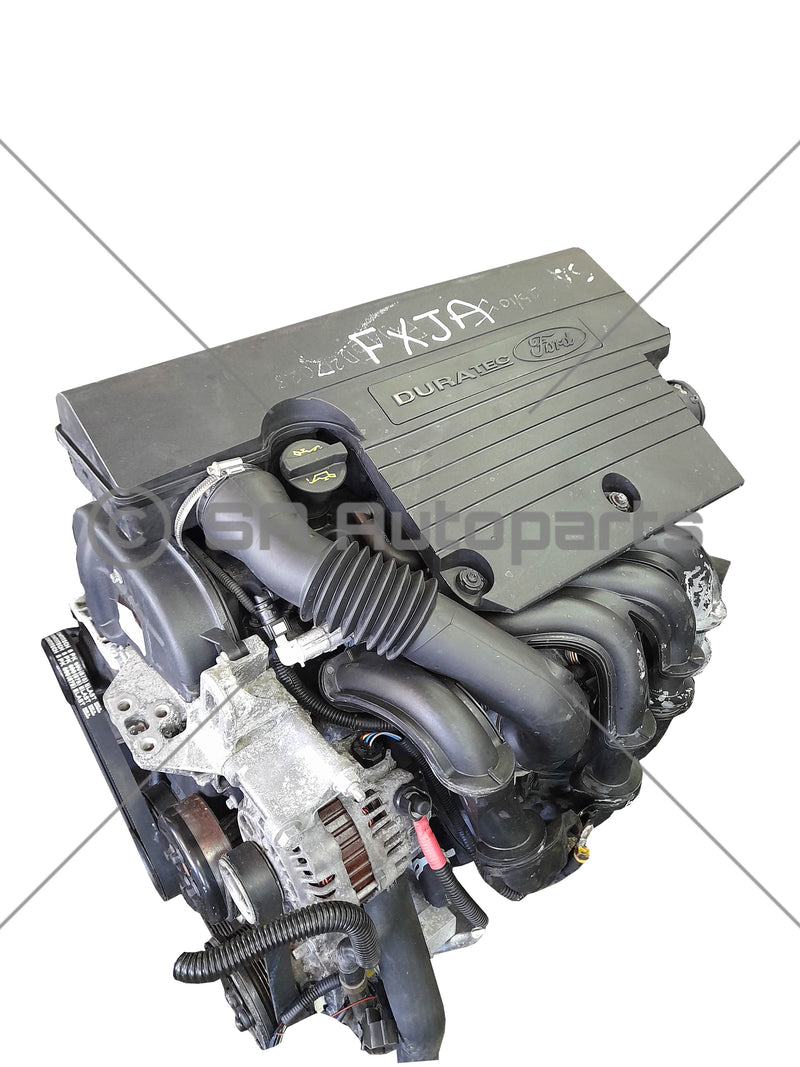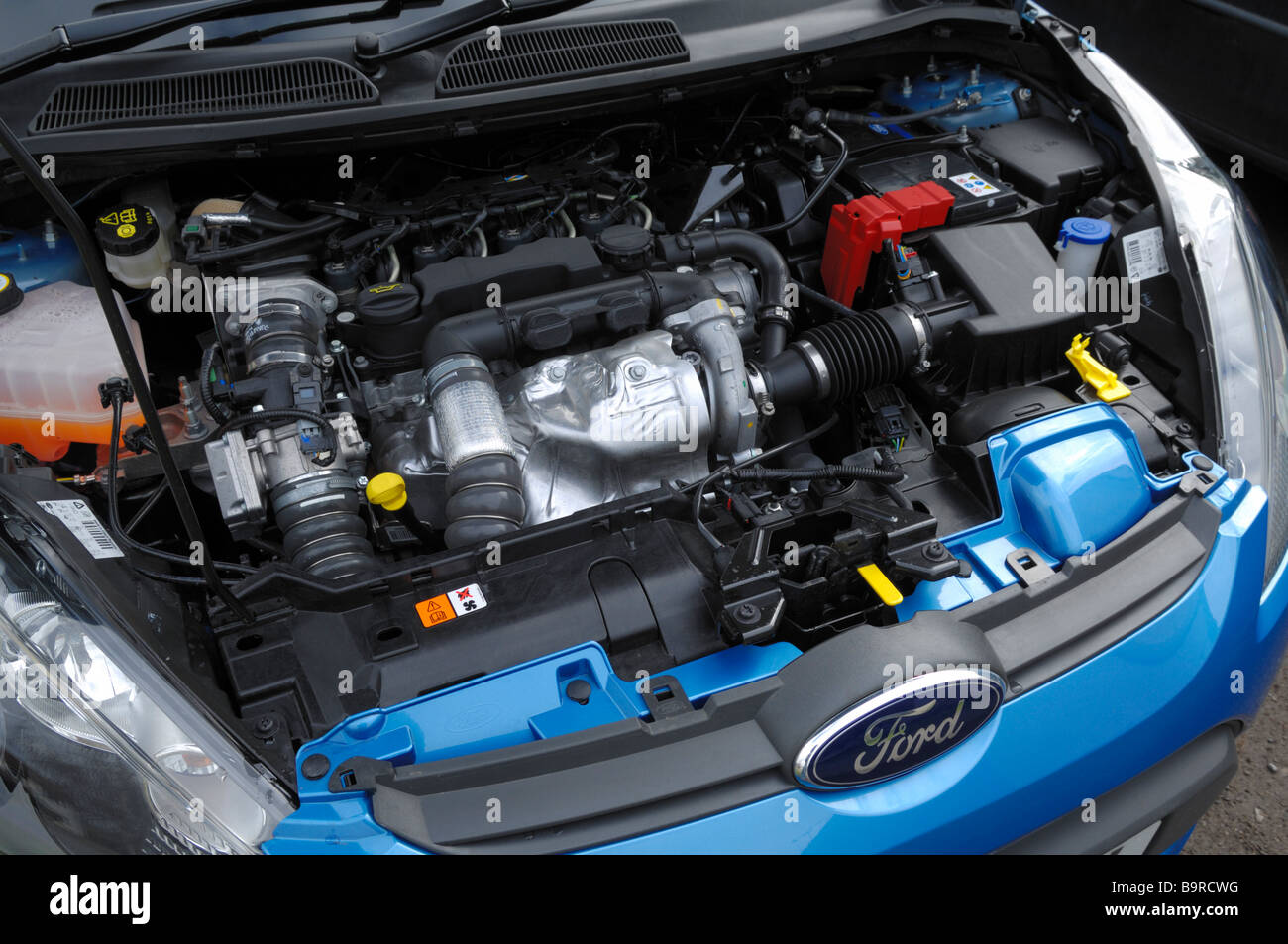Upgrade Your Ford Fiesta Engine for Better Fuel Economy and Power
Upgrade Your Ford Fiesta Engine for Better Fuel Economy and Power
Blog Article
The Future of Engines: Advancements Driving Lasting Power Solutions
As the auto sector browses the vital shift towards sustainability, the future of engines is progressively defined by groundbreaking advancements. Electric engine advancements, alongside encouraging developments in hydrogen gas cells and biofuels, are reshaping the landscape of power services. The appearance of hybrid systems better complicates this development, presenting both challenges and opportunities to minimize emissions efficiently. Coupled with the integration of expert system in engine design, these technical strides raise important inquiries regarding their long-term feasibility and influence on traditional standards. What might this suggest for the industry and consumers alike?
Electric Engine Advancement
The evolution of electrical engine growths symbolizes a pivotal change in the vehicle and aerospace sectors, driven by the immediate need for sustainable options to nonrenewable fuel sources. This change is characterized by significant advancements in battery modern technology, power electronic devices, and electrical motor layout, which collectively boost the efficiency and efficiency of electrical engines.
Current advancements have resulted in the development of lighter, much more energy-dense batteries, such as lithium-silicon and solid-state batteries, which assure longer arrays and shorter charging times. Furthermore, enhancements in electrical motor effectiveness, such as using permanent magnets and progressed cooling systems, make it possible for electrical engines to operate successfully under varying problems. These enhancements not just boost vehicle performance yet likewise contribute to a decrease in total energy intake.
Additionally, the combination of innovative software formulas has actually optimized power administration in electric automobiles, permitting regenerative braking and anticipating billing approaches. As suppliers significantly welcome electric propulsion, the aerospace and vehicle fields are observing a standard shift in the direction of greener innovations. This evolution not just satisfies regulative needs yet additionally lines up with consumer preferences for eco-friendly transport solutions, strengthening electrical engines as a keystone of future lasting movement.
Innovations in Biofuels
As the aerospace and automotive industries increasingly prioritize lasting power resources, advancements in biofuels arise as a complementary option to electrical engines. Biofuels, stemmed from natural materials such as crops, waste, and algae, provide a cutting-edge avenue for decreasing greenhouse gas discharges and dependence on fossil gas.
Recent research study has focused on improving the effectiveness and sustainability of biofuel production. Second-generation biofuels use non-food feedstocks, lessening competition with food supply and lowering environmental impact. Advancements in synthetic biology have actually made it possible for the design of bacteria to generate biofuels a lot more effectively, leading to greater returns and reduced manufacturing expenses.
Furthermore, the advancement of drop-in biofuels enables seamless assimilation right into existing framework, enabling a smoother change for industries commonly dependent on fossil gas. ford fiesta engine. These fuels can be used in present engines without modifications, facilitating their fostering across various industries
Investments in biofuel modern technology, together with supportive plans, are essential to drive development and scalability. As the global neighborhood looks for to fight climate change, biofuels offer a practical, instant service that lines up with the overarching goal of sustainability in transportation and air travel.
Hydrogen Gas Cell Modern Technology
An expanding number of scientists and business are discovering hydrogen gas cell technology as a feasible choice to standard power resources in transportation and power systems. This innovation transforms chemical power from hydrogen into electrical power with an electrochemical reaction, with water as the only by-product, making it an environmentally pleasant choice.
The core of hydrogen gas cells is the gas cell pile, where hydrogen particles are divided right into protons and electrons. The flow of electrons generates electrical power, while protons move with a membrane to integrate with oxygen from the air, creating water. This procedure leads to high effectiveness and reduced discharges, positioning hydrogen gas cells as an important gamer in the transition to lasting energy.
Significant improvements have been made in boosting the toughness and efficiency of gas cells, together with lowering costs via innovative manufacturing methods. In addition, the development of hydrogen manufacturing techniques, such as electrolysis powered by renewable resource resources, improves the sustainability of the general system. As infrastructure for hydrogen refueling expands and production techniques end up being more effective, hydrogen gas cell technology holds wonderful assurance for decarbonizing numerous industries, including durable transport and fixed power generation.
Crossbreed Equipments and Their Effect
Hybrid systems represent a significant advancement in lasting engine technology, merging typical inner burning engines Extra resources with electric propulsion to enhance energy efficiency and minimize discharges (ford fiesta engine). This twin strategy allows automobiles to utilize both source of power, enabling better adaptability in energy usage and decreasing dependence on nonrenewable fuel sources

Along with environmental advantages, hybrid systems use customers a practical shift in the direction of fully electric lorries. They ease variety anxiety by integrating the comfort of gas with the advantages of electric propulsion, making them an attractive option for a larger audience. As suppliers spend in hybrid innovation, the advancement of advanced battery systems and lightweight materials proceeds to enhance performance. In general, hybrid systems stand for a pivotal step towards attaining lasting transportation and attending to the immediate requirement for eco pleasant power solutions.
The Function of AI in Engine Layout
Leveraging sophisticated algorithms and artificial intelligence techniques, the auto sector is significantly integrating expert system (AI) right into engine style processes. AI enhances the efficiency and efficiency of layout by assessing vast datasets to identify ideal setups and performance specifications. This ability enables engineers to mimic various operating problems and anticipate engine behavior under multiple situations, dramatically decreasing the time and expense related to typical prototyping methods.
In addition, AI facilitates the growth of innovative products and combustion procedures tailored for sustainability. By optimizing gas effectiveness and reducing emissions, AI-driven designs align with global efforts targeted at minimizing the carbon impact of automotive engines. Artificial intelligence algorithms can likewise forecast upkeep requirements, resulting in enhanced reliability and long life of engine elements.
In Addition, AI contributes in the assimilation of electrification technologies, such as crossbreed systems, where it can maximize battery administration and energy recuperation processes. As the industry moves in the direction of even more sustainable power services, the duty of AI in engine style becomes progressively essential, driving technology and improving the efficiency of future engines. Ultimately, the partnership in between AI and engine style heralds a new age of smarter, cleaner, and extra effective automotive technologies.

Verdict
In conclusion, the future of engines is being shaped by a convergence of cutting-edge modern technologies that prioritize sustainability. Electric engine improvements, biofuel developments, hydrogen gas cells, and hybrid systems collectively contribute to a significant reduction in emissions and environmental effect.
Electric engine advancements, alongside encouraging growths in hydrogen gas cells and biofuels, are reshaping the landscape of power options. Furthermore, renovations in electrical motor performance, such as the usage of permanent magnets our website and progressed cooling systems, enable electric engines to operate effectively under differing problems. By optimizing gas efficiency and reducing exhausts, AI-driven styles straighten with global efforts aimed at decreasing the carbon impact of automobile engines. As the market relocates in the direction of more sustainable power services, the function of AI in engine style comes to be significantly crucial, driving innovation and boosting the performance of future engines. Electric engine improvements, biofuel growths, hydrogen you could look here fuel cells, and crossbreed systems jointly add to a substantial reduction in discharges and environmental effect.
Report this page